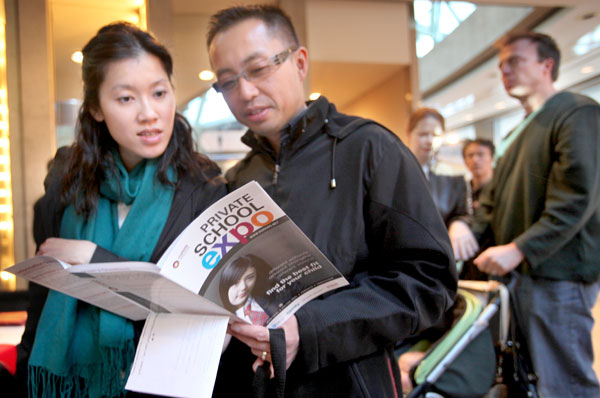1. School philosophy: What are the key elements of your school philosophy and vision? How do these fit with your school’s mission statement? How are they applied in the classroom and school community?
2. Types of students: What does your model student look like? What kind of academic focus do they typically have? What kinds of interests and goals might they have outside of academics? How does your idea of a model student align with your school vision or philosophy?
3. Curriculum: What curriculum do you use? Do you meet or surpass the curriculum standards of your home province (such as Ontario or BC)? Do you have a specific curricular approach, and if so, what is it? For instance, is it a Montessori, Waldorf, Reggio Emilia, or IB approach? How is your curricular approach integrated into the classroom at different levels of education?
4. Class size: What is the class size and student-to-teacher ratio for my child’s class and for classes he or she may move on to? Do you offer individualized learning and differentiated instruction and what do these things look like? Do you have teaching assistants and what role do they play?
5. Tuition: How much is annual tuition? What exactly does tuition include and not include? Are there any essentials not included in tuition (e.g., textbooks, uniforms, etc.)? What can I expect my overall yearly expenses, including tuition and extra costs, to be at your school?
6. Extracurricular activities: What kinds of extracurricular activities do you offer? When and how often do these activities take place? Are these activities included in tuition or do I have to pay extra for them? If they cost extra, how much?
7. Teacher qualifications: What educational qualifications and training do your teachers have? What other credentials and qualities do your teachers have (e.g., teaching experience, dedication, passion, etc.)? What kinds of opportunities do you give teachers to develop themselves professionally (e.g., workshops, seminars, conferences, advanced studies, etc.)?
8. Use of technology: What kinds of technological resources do you have and in what, if any, ways do students have access to these? How is technology integrated in the classroom at each level of education? What kinds of technological skills, if any, do you teach? Do your offer any tech-based courses, and if so, which ones?
9. Measurement of progress: How do you measure individual achievement and progress? Do you grade work, such as assignments and tests? If so, how often? If you don’t grade work, how do you measure student progress? What benchmarks do you use? Do you have any forms of self-assessment, such as student rubrics? How, and how often, are parents updated on their children’s progress? Do you use report cards? If so, how often are they handed out?
10. Student life: What strategies do you use to promote a vibrant and cohesive community at your school? Do you have regular community-building events and activities? How do you cultivate strong peer relationships? How do you deal with social and behaviour problems, such as bullying, teasing, and ostracism?
11. Parent involvement: What opportunities are there for parents to get involved in school? Is there a parents’ association? If so, what does it do? What events take place during the school year to involve parents? How do educators communicate with parents?
12. School governance: How is your school operated and governed? Are you a for-profit, not-for-profit, or non-profit school? Do school staff answer to an owner-operator, board of directors, or any other persons or organizations? Who do I go to with questions about my child?
For more information, read our guide on questions to ask preschools, elementary schools, and high schools.










